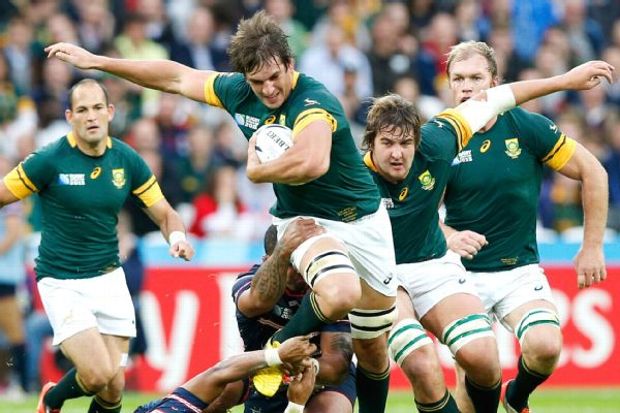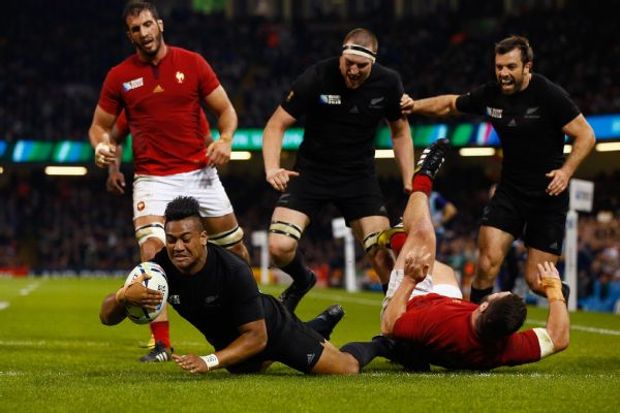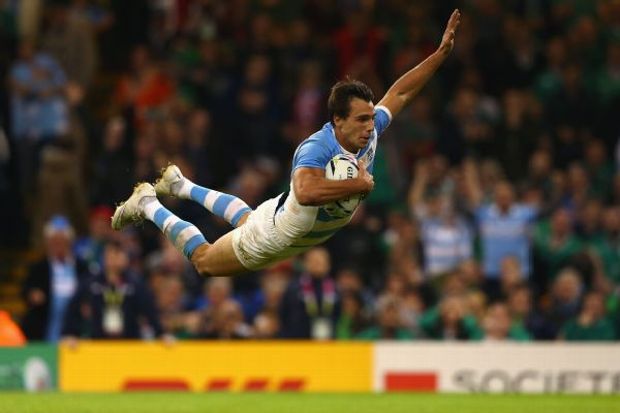|
Rugby World Cup
Blue sky thinking plays part in southern World Cup semis
John Mitchell
October 21, 2015
Which rugby player could star at the Olympics?
For the first time in the history of the Rugby World Cup, all four semi-finalists hail from the southern hemisphere -- and, as if to add insult to injured northern pride, it has happened in England. In my book, that is just the way the tournament has panned out rather than any major issues with northern hemisphere rugby. I don't believe the chasm between the two hemispheres has widened that much since the tournament began, but, for all that people were saying how little there was to choose between the top sides in world rugby prior to the World Cup, the wheat has been separated from the chaff. There has always been a difference in style between northern and southern hemisphere rugby because of the contrast in playing conditions. While the European club system makes it difficult to control and develop the style of rugby that the Test sides play compared with the Super Rugby franchises in the southern hemisphere, you simply can't expect northern hemisphere teams to play like their southern counterparts on heavy fields and in wet conditions. From December to March, the weather in Europe limits the space on the field that teams can attack.  Handre Pollard© AP Photo/Christophe Ena Apart from the final few minutes of the Australia-Scotland quarterfinal and one or two other matches over the past five weeks, the British autumn has been fair and dry -- conditions that suit the southern hemisphere sides. Unlike the likes of England, France and Wales, the Rugby Championship quartet take more risks on the advantage line while attacking through the phases and look to exploit all areas of space on the field: they play with width, the passing is effective, and their players possess the requisite skill-set and vision to play an attacking game. This was clearly demonstrated in the quarterfinal between Argentina and Ireland, who didn't risk enough on offence and missed out on the rewards reaped by the Pumas.  © Stu Forster/Getty Images New Zealand's semifinal showdown with South Africa at Twickenham is a Test laced with intrigue. Expect plenty of shots at goal as both teams aim to build scoreboard pressure by kicking their penalties, but the pressure the All Blacks can put onto the Springboks' kicks from hand could be crucial. The Boks struggled to secure the ball from restarts against Wales in the quarterfinals, and the crumbs of possession that the two teams gain from contestable kicks will prove vital. South Africa will look to slow down the All Blacks' ruck ball and use their line speed to put pressure on the runners outside Dan Carter. I feel it will come down to which forward pack dominates the carry off No.9 from wide rucks. If the Springboks are to reach the World Cup final they need to be leading going into the final quarter. In recent matches against the All Blacks they have tended to fade in the second half. After their defeat to New Zealand at Ellis Park in this year's Rugby Championship, Heyneke Meyer admitted that his team wasn't fit enough -- they should be fitter now, but they will still struggle to win on Saturday if they are trailing with 20 minutes to go. Steve Hansen selects substitutes who can help increase the All Blacks' tempo in the final quarter, and the Springboks replacements will need to do the same.
In South Africa's favour, they are probably the better-prepared team for this semifinal. Since losing to Japan they have had to win every match, and they were given a good test by Wales. After their opening match against Argentina, the All Blacks cruised through their pool. They were sublime against France, who capitulated badly in the second half of the quarterfinal, but Hansen would have been hoping for more of an arm wrestle to prepare his charges for the semifinal. Meyer's men are certainly not going to afford the All Blacks the same space and time as the French handed them at the Millennium Stadium. That said, the Springboks take fewer risks than the other three southern hemisphere sides. They will need to take more risks in attack against the All Blacks.  © Matt Lewis/World Rugby via Getty Images As far as the second semi-final on Sunday is concerned, I expect both the Wallabies and Pumas to put on a free-flowing attacking display built around the pace in their back lines. The Wallabies were challenged by Scotland, but it was their charity -- in the form of missed goal kicks and two gift-wrapped tries -- that kept the Scots in the contest. A big fright, like Australia experienced at Twickenham, can also ignite a team. It proved to be the case for the Wallabies against Ireland at the same stage of the 1991 World Cup, which they ultimately won. Expect them to keep the ball alive whenever possible with offloads or kicks in behind the Puma defence. There is no doubt the Australia side will be stronger should David Pocock return from injury. The Pumas, for their part, need to frustrate Pocock and Michael Hooper by giving them next to nothing at the breakdown. Argentina won't be allowed to recycle the ball as quickly as they did against Ireland, and their passing could be put under greater pressure. You have to admire the passion of the Pumas, but it could be to their detriment if they get too emotional and become ill-disciplined. They need to stay calm and focused. © ESPN Sports Media Ltd.
|
Live Sports
Communication error please reload the page.
-
Football
-
Cricket
-
Rugby
-
- Days
- Hrs
- Mins
- Secs
F1 - Abu Dhabi GP
Abu Dhabi Grand Prix December 11-131. Max Verstappen ()
2. Valtteri Bottas (Mercedes)
3. Lewis Hamilton (Mercedes)
4. Alexander Albon ()
5. Lando Norris ()
6. Carlos Sainz Jr ()
-
ESPNOtherLive >>
Darts - Premier League
Golf - Houston Open
Snooker - China Open
Tennis - Miami Open

